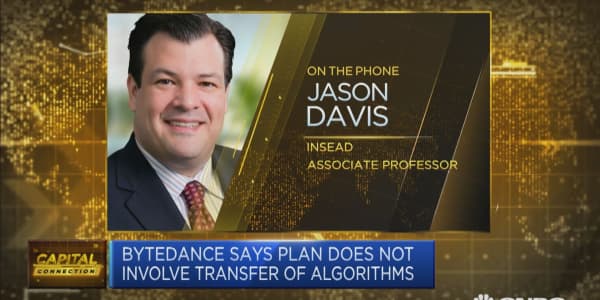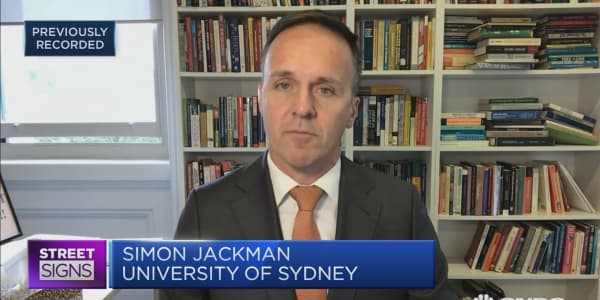It remains to be seen whether a major investor protection known as the "fiduciary rule" will survive under President-elect Donald Trump.
Nonetheless, you'll likely see some industry practices change around your IRA and 401(k) in the new year.
While Trump has not directly addressed theregulation, a rule from the U.S. Department of Labor that would require financial advisors to provide advice in your best interest, his surrogates have.
The Labor Department released the final version of its regulation in April 2016. It is the result of a multiyear project the agency took on in 2009.
This is separate from the Securities and Exchange Commission's efforts toward developing a uniform fiduciary standard, which stems from the Dodd-Frank legislation enacted during the financial crisis and is considered one of President Barack Obama's signature efforts.
The fiduciary rule, which would apply to individual retirement accounts as well as 401(k) rollovers, is scheduled to begin taking effect on April 10, 2017. Today, much of that is up in the air. Though Trump himself hasn't spoken about it, one of his key advisors said last month that the new president would likely repeal the rule.
The measure's prospects have dimmed even further, now that Republicans hold a majority in both the House and Senate. House Financial Services Committee chairman Jeb Hensarling (R-Texas) spoke against the rule last Wednesday at the Exchequer Club in Washington, D.C.
"The Trump administration, working with our Republican majority in Congress, should make sure this harmful, bureaucratic rule does not go into effect as planned in just five months," he noted in prepared remarks.
Delay, repeal or replace
"The two big questions are: Will the Trump administration repeal or replace the rule, and what's the timing?" said Bradford P. Campbell, counsel at Drinker Biddle in Washington, D.C., and a former assistant secretary of labor at the DOL.
The new administration can issue an interim final or direct final rule that will push the April 10 deadline further. "They can quickly extend the effective date a year, give people time to figure out the compliance and how to deal with it," Campbell said.
During that time, Trump's administration can also determine how it wants to proceed with the regulation, he said.
"We may see some advisors make some changes, even if the rule doesn't go into effect on April 10," Campbell said. "Some are so far down the road, they'll continue with the decisions they've made," he said, "but not all of the changes they would've been forced to make."
IRA account holders should be aware, said Barbara Roper, director of investor protection at the Consumer Federation of America in Washington, D.C.
"It could be open season again on rollovers," she said. "If the rule is withdrawn, the default assumption should be that the recommendation will enrich the firm and not you."
Plenty of IRA assets are on the line and would be subject to the regulation. See below.
Legal challenges
A Dallas federal court judge last Thursday began hearing oral arguments filed by the U.S. Chamber of Commerce, the Securities Industry and Financial Markets Association and others in a suit against the DOL to block the rule. Another case against the Department is pending in Kansas, where an insurance agency is also suing to throw out the regulation.
"The next step is for those courts to issue rulings, and they can stay the applicability of the rule while the case proceeds," Campbell said. "But if there were a loss [for the DOL], would the Trump administration appeal?"
A federal court judge in Washington, D.C., earlier this month decided in favor of the Labor Department in a lawsuit brought by the National Association for Fixed Annuities.
What investors can expect
If the DOL's rule is delayed or goes away, here's what will happen:
Fees vs. commissions: In order to comply with the regulation, some firms have announced their advisors would get paid on a fee basis, as opposed to commissions, for advice on IRAs.
Those changes may not stick. Commonwealth Financial, for instance, previously said it would migrate from commissions to asset-based fees for retirement business. Last week, however, the firm signaled it will revert to commissions if the rule doesn't come to fruition.
"We will continue to carefully monitor the situation, and if the facts or circumstances change, we'll modify our stance accordingly," Commonwealth's spokeswoman Jacquelyn Marchand wrote in an email.
Best interest contract: The fiduciary rule allows your advisor to continue receiving commissions under certain conditions.
Your advisor and his or her firm will provide you with a "best interest contract," which will permit them to be paid this way as long as they provide advice in your best interest, avoid making misleading statements and receive reasonable compensation.
Do not plan on seeing this additional paperwork if the rule is ultimately repealed.
SEC fiduciary rule: Don't expect the Securities and Exchange Commission to release its own regulation any time soon, said Blaine Aikin, executive chairman of fi360, a fiduciary consultancy in Pittsburgh.
SEC chairwoman Mary Jo White announced last Monday that she would leave the agency at the end of Obama's term. With that departure, the agency is down to two commissioners.
"You need three commissioners to even act," said Aikin. "It doesn't look like the SEC will do anything with respect to its own fiduciary rule any time soon."
You're on your own: On the retirement plan side, consumers have been watching fees fall. They've also seen plenty of lawsuits against employers for unreasonable expenses and fiduciary breach with respect to 401(k)s. See below for a chart of declining plan fees.
Based on all of the publicity around fiduciary responsibility and declining costs for retirement plans, do investors know enough to seek advice that is in their best interests?
"Most of the people you think are fiduciary advisors, aren't," said Roper. "People will have to do a lot of work on the front end to make sure the person they're dealing with is in fact a fiduciary."





